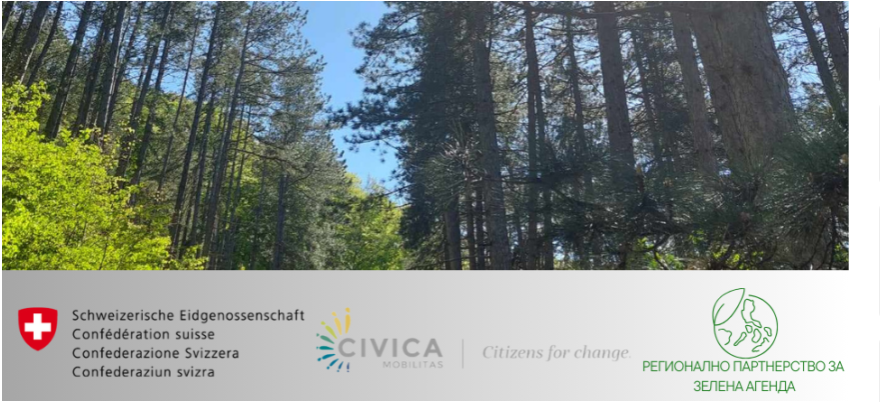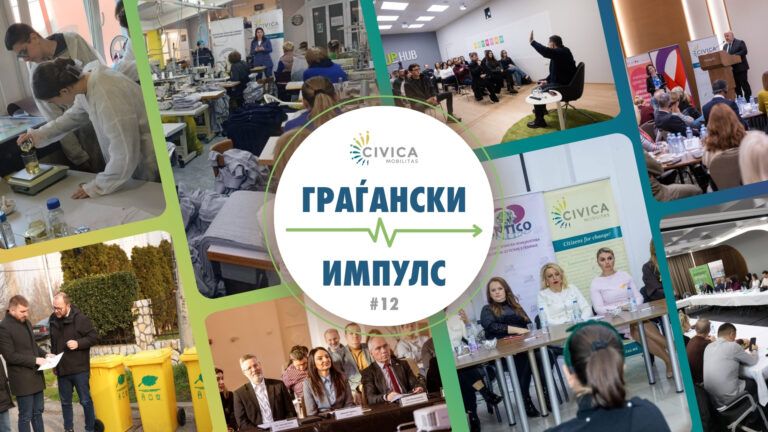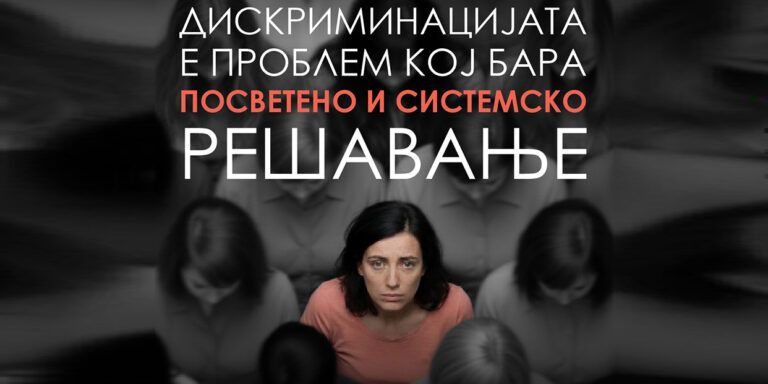“The Green Agenda” on the Margins of Social Change: How Far Are We in Implementing the Green Agenda in Macedonia?
The “Green Agenda for the Western Balkans,” a long-term strategy for Western Balkan countries, was signed by the region’s leaders in 2020 shortly after the adoption of the “EU Green Deal.” Its purpose is to address pollution issues while accelerating the process of aligning environmental standards with those of the EU. But what does this entail?
The decarbonization of the energy sector, as well as carbon-intensive sectors, alongside sustainable waste management, are key areas that will directly impact the reduction of air, water, and soil pollution and significantly contribute to improved public health. This is especially crucial given that pollution is a leading cause of premature death for thousands of people in the region.
But where do we stand with all these processes? Do we have the capacity and resources to tackle these challenges on both national and local levels? Are we doing enough? Are policymakers prioritizing the goals outlined in the “Green Agenda,” and is there commitment to substantive reforms, political will, and support for inclusive project and program implementation? It must be acknowledged that progress is slow, challenges are numerous, and the responsible institutions struggle to adapt to change. Although public and civil sector pressure has recently increased, one major shortfall remains: a large portion of the Green Agenda’s provisions are not legally binding for these countries.
On the other hand, corruption, poor governance, and clientelism allow industrial entities to evade their obligations regarding environmental and public health standards. Municipalities with established waste separation systems are rare and still presented publicly as good examples, even though this practice should have become a widely accepted standard long ago. By now, we should be discussing the implementation of circular economy principles.
Phasing out coal is still delayed, and without a stable alternative source of base energy, it remains an option, unfortunately, even beyond the short term. The process of transforming coal regions’ local economies is still at an early stage, with appropriate strategies yet to be developed. The development of the transmission and distribution power grid is a critical prerequisite for transforming and decarbonizing the energy sector.
Regrettably, we are also behind in this segment. Energy poverty remains above 20%, more than double the EU average. Households affected by this are economically unable to invest in “clean” energy sources, such as solar panels, whether individually or through energy cooperatives. The main reasons are economic, but there is also a lack of awareness, insufficient proactive engagement from the responsible institutions, and delays in finalizing the necessary legal regulations.
Primarily, this involves the adoption of the Renewable Energy Law and amendments to the Cooperatives Law. In terms of decarbonization and pollution reduction for companies, challenges remain, especially with the impending implementation of the Cross Border Adjustment Mechanism (CBAM) – a carbon tax on emissions from specific industrial sectors. This significantly affects their competitiveness in EU markets.
One of the biggest issues in this segment is the development of the distribution network. Frequently, companies are hindered in implementing their investments in solar photovoltaic facilities due to the insufficient capacity of the network, particularly in certain regions of the country.
The problems and challenges are numerous. As an organization involved in policy creation and progress monitoring, we emphasize the need for a sustainable approach in developing policies – economic growth that does not increase greenhouse gas emissions and that minimizes environmental impact as much as possible. Achieving such a goal is a complex process that requires a dedicated, comprehensive approach, high professionalism, learning from others’ experiences, strong political will, and the participation of all stakeholders.
With the “Regional Partnership for Better Green Agenda Implementation at the Local Level” project, which the Center for Climate Change is implementing with the Eco Green Movement, Geosphere, Ecotourism 2016 Ohrid, Kreativ, the Foundation for Local Development and Information Technology, the National Roma Center, and Eco Action from Tetovo, and financed through the Civica Mobilitas program, our goal is to bring the Green Agenda closer to local authorities and stakeholders. Through active participation in policy creation, we aim to contribute to its implementation. In the coming period, we will work on activities that will facilitate Macedonia’s transition toward the EU goals for a carbon-neutral society by implementing the Green Agenda for the Western Balkans inclusively and transparently on a local level, with active cooperation of the civil sector and involvement of all stakeholders in the policy-making process.







![Sre]ni praznici(2)](https://civicamobilitas.mk/wp-content/uploads/2025/12/sreni-praznici2-768x432.jpg)
